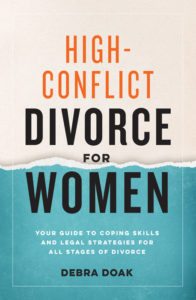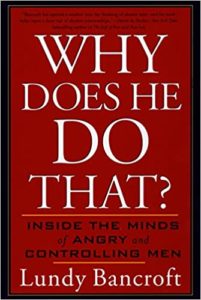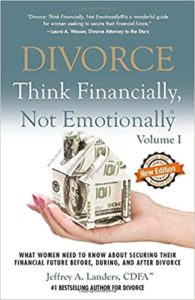
Narcissistic Divorce Abuse: Preparing for the Temper Tantrum
You put up with the neglect, cheating, porn use, and emotional abuse for far too long, but you got the support you needed and made the decision to get out. Hooray! I am so proud of you. What an act of courage. But, I would be negligent if I didn’t also warn you that abusive behaviors don’t automatically stop when you separate. Unfortunately, narcissistic abuse is likely to continue during your divorce.
Let’s talk about why abusers (manipulators, narcissists, assholes, whatever you want to call them) and their adult temper tantrums make divorce harder and more conflicted than it needs to be. And why you need to expect this behavior, be prepared, and stay alert.
The Problems: Ego, Entitlement, and Economics
Frankly, abusive partners need to win. They think they’re better, smarter, and more worthy than you are. And giving up control over you or losing one dollar of “their” money is an assault to their sense of ownership. The dirty divorce tricks they like to play run from frustrating to downright evil. Things like:
- Not complying with requests for documents
- Sending harassing texts and emails
- Hiding money or restricting your access to it
- Spreading rumors about you to friends, family, and children
- Canceling cell phones, car insurance, or medical insurance
- Claiming you’ve abused them or the kids
- Filing for bankruptcy
1. Ego
Abusers don’t easily allow their victims to leave them. Most abusers can rate pretty high on the narcissistic scale and an ego injury occurs when you decide to no longer accept their poor treatment.
In an article for Psychology Today, Karyl McBride Ph.D. explains “When narcissists feel that they have lost, or when they feel rejected or abandoned, they don’t forget it. We have all felt abandoned or rejected at times in our lives, and most of us get over it with a little time and processing of feelings. We move on. But the narcissist does not. Narcissists are not enough in touch with their own feelings to move on. The issues remain in their mind as ‘It’s all your fault’ and, ‘How could you do this to me?’ They want to strike back.”
They experience a loss of emotional control and have a reflexive need to punish the “offending” person. In a divorce, “punish” may mean hiding assets, not cooperating, filing extraneous motions, verbal abuse, stalking, and more.
Although they may appear charming and confident in public, at their core abusers feel inadequate and lack self-esteem. Their ego requires incredible amounts of reinforcement and if you leave, they will have to do a lot of work to secure new supply.
2. Entitlement
Abusers have convinced themselves that they both own and are owed. That is the entitlement mentality that allowed them to cheat, lie, manipulate, and otherwise behave badly during your marriage.
In the bestseller Why Does He Do That, Lundy Bancroft says, “The sense of ownership is one reason why abuse tends to get worse…The more history and commitment that develop in the couple, the more the abuser comes to think of his partner as a prized object.”
3. Economics
You and your partner were not a team. You didn’t share goals, dreams, and resources. They “allowed” you to spend their money as long as you were providing them with a service – raising their children, making them look good, cooking, feeding their need for affirmation, sex, and so on. Once you decide that you don’t want to be owned or controlled by your abuser any longer, they no longer feel any obligation to share financial resources with you (and sometimes their own children).
Because money, like their spouse, “belongs” to and is a source of ego supply for the narcissist. Like a toddler on a playground, the abusive partner never has been very good at sharing. Abusers are most likely to pull dirty divorce tricks in order to avoid giving you an equitable share of the marital assets in your divorce.
The Solution: Education and Empowerment
One of the best things you can do to prepare for divorce is to strengthen your self-esteem muscles. You’ll need a great support team and good self-care, but those must rest on a foundation of you believing in yourself, trusting you can handle whatever comes your way, and your ability to advocate for what you need.
If you’ve been in an emotionally abusive relationship, your partner may have been doing everything in their power to make you believe that you can’t trust yourself, you aren’t worthy, and you can’t handle it. It’s time to take your power back. As you gain knowledge, create your exit strategy, implement more self-care, and start focusing on what YOU need instead of what everybody else needs, you’re going to need to campaign for yourself like never before.
When I work with clients getting ready to divorce abusers, we work through 4 big, important steps:
Prepare
Preparing means digging into all things financial. If you haven’t been involved in your family’s finances, don’t panic. My Ditch Your Divorce Fears Financial Planner has all the tools, tips, and worksheets I use with clients every day to help them take charge of their financial lives. You get a step-by-step system to review and analyze your finances, your choice of printable or downloadable versions of worksheets, and lots of instruction and encouragement from me to get through it.
Prepare also means to get some safety measures in place in case things go sideways once you start the divorce conversation. Things like emergency cash, your own personal checking account, a credit card in your name only, and copies or photos of important stuff. Download my FREE Exit Strategy Checklist for some more ideas. Other helpful resources include my book High-Conflict Divorce for Women and Splitting by Bill Eddy and Randi Kreger.
Plan
Now that you know your current numbers, you can make a financial plan for life after divorce. Start with the budget worksheet from the Ditch Your Divorce Fears Financial Planner or create your own and evaluate some different scenarios. Each person’s scenarios will look different, but they might be based on questions like:
- Where will I live? Stay in the marital home, purchase a new home or rent?
- What will I earn? Are you planning to change careers, go back to work, get more education?
- How much will child care cost if I’m working?
- What if I pay off my car?
- What can I cut back on?
- How much will health insurance be?
- What if spousal support is $X? What if it’s $Y? What if I took a lump sum instead of a monthly payment?
Now you have information and now you can make a plan. Even if your bottom line doesn’t look the way you wish it did, I want you to understand that once you see it, you can change it. Do you need more time to earn a little more or pay off debt before you divorce? Or wait one more year until the baby goes to preschool to save on daycare costs? What do you need more of or what do you need less of to make the numbers work?
Prioritize
Now it’s time to decide what’s worth it, what’s not, and what you can and can’t live without. It’s time to start prioritizing your divorce goals. What are your must-haves, your wants, and your willing-to-trades? Some examples might be: financial security, retirement funds, health insurance coverage, pension benefits, spousal support during job training, sharing of kids’ school and college expenses, keeping the marital home, cash equity payment from the home, living in the same school district or moving closer to family.
Depending on the complexities of your case, this may be the right time to consult with an experienced family law attorney or two to get a better understanding of exactly what assets, debts, and property you would likely be eligible to receive (don’t hire anyone until you know they’re the perfect fit for you). Because narcissistic abuse continues during divorce, you’ll need a legal expert that has your back.
Position
So what position do you need to be in to be ready to leave? Maybe you ran your numbers and you still weren’t happy with how they looked because you really want to keep the family home, but your budget says no. Or you’ve been married 19 years to a spouse on active duty military – what pension and health insurance benefits do you give up if you leave now? Or waiting one more year means the youngest goes to college and you can downsize your home?
This piece of the puzzle is all about timing. You’re still leaving, but maybe now isn’t the right time. By going through these steps and knowing your numbers, you can identify the benchmarks you are looking for. Then you’ll feel confident that you’ve put yourself in the best position possible when you do choose to leave.
Narcissistic Divorce Abuse is Real
Hey, I’ve been there, done that, got the t-shirt. And I’ve helped lots of women get prepared and stay protected heading into a divorce with these entitled partners. With a plan and the right support, you can stand up for what you deserve and keep your sanity.
Don’t talk to your partner about divorce before your plan is ready. And don’t wait for the bullets to start flying before you put on your riot gear. Let’s talk first.
Wishing you strength and wisdom,

P.S. Looking for more resources to prepare to go up against narcissistic divorce abuse? Here are just a few of my favorites:
 |
 |
 |
 |
 |



